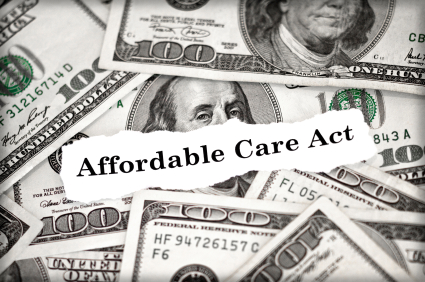Benefits
What are the Tax Implications of ObamaCare?
Most people have heard the endless political arguments about the Affordable Care Act, aka ObamaCare, but many still don't really know the full extent of what the law is. The Affordable Care Act was enacted by Congress and signed into law by President Obama in 2010, becoming the biggest healthcare reform measure since the implementation of Medicaid and Medicare in 1965.
May. 13, 2014

Most people have heard the endless political arguments about the Affordable Care Act, aka ObamaCare, but many still don't really know the full extent of what the law is. The Affordable Care Act was enacted by Congress and signed into law by President Obama in 2010, becoming the biggest healthcare reform measure since the implementation of Medicaid and Medicare in 1965.
The purpose of the bill was to increase the quality and affordability of healthcare and reduce costs, but it has faced many glitches and loopholes that have resulted in delays in full implementation. However, some of the tax implications have already affected taxpayers, mostly higher net worth individuals and couples. Whether you’re a fan or a critic, or just curious to know how ObamaCare will affect your taxes, this article will help.
The tax implications most likely to face the most people are married couples who file taxes jointly and make over $200,000 annually, wealthy individuals and certain types of investors, who will be taxed a whopping 3.8 percent on investment tax, and 0.9 percent on payroll tax, and this could go up. This tax hasn’t hit retirement accounts which could be the ultimate trigger for angry Americans if this is to become so. Luckily it hasn’t, which is a good thing because retirees spend all of their lives saving, and if they manage to save over the annual threshold for their retirement they should be considered lucky in today’s economy.
For middle income earners, there isn't much of a change in taxes. However, there are several law reforms in Obamacare to keep an eye on:
- Employees will be required report the total amount paid by them and their employer for health insurance premiums, flexible spending beyond payroll deductions and other premiums, on their returns.
- A 3.8 percent tax on net investment income will apply to taxpayers at higher income levels based on filing status.
- Taxpayers in those same AGI ranges will also pay an additional 0.9 percent Medicare tax on wages and compensation in excess of $200,000.
- Individuals are not allowed to shop and buy health insurance from the affordable care act marketplace annually by Jan. 1st
- And the biggest issue of all with Obamacare is the penalty for not having healthcare coverage.
The penalty for uninsured individuals starts at $95, or 1 percent of taxable income in 2014, whichever is more. In 2016, it will increase to the greater of $695 or 2.5 percent of taxable income. A lot of Americans are tangled in a game of Catch 22; many can’t afford healthcare costs or coverage for that matter, and will now be served a penalty for not having insurance coverage. But other than the obvious bumps of ObamaCare, the majority of those who will be hit hard by increased taxes are those individuals and couples filing their taxes jointly who make more than annual income threshold allowed.
Experts aren’t sure yet if middle income earners will continue to be spared from the damaging implications of the ObamaCare reform, and aren’t even sure how implementation will affect taxpayers in the future, but what’s clear right now is that high income earning people will likely see a chunk of their annual wages taxed hardly enough to cause a financial dent, and this is all to reduce the cost of healthcare. Whether you’re a critic or a fan it’s a done deal. And the effects will really start to show in the 2014 tax season which will be in 2015.
So there you have it folks, the tax implications of ObamaCare. What do you think?
——————————-
Troy Martin, CPA, is a shareholder and partner at the Utah accounting firm of Cook Martin Poulson, P.C., where he acts as a facilitator to help small business owners and executives increase their personal and business performance. He enjoys helping clients with strategic planning, maximizing business value, cash-flow forecasting and budgeting, and teaching clients how to utilize financial information to increase business performance.
